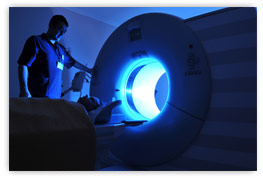Did you know?
- When installed and used correctly, car seats and restraints can reduce fatal injury by up to 71% for infants and 54% for toddlers.
- 7 out of 10 child safety seats are not installed correctly.
There are many things responsible parents do to protect their children, including buckling them in when riding in the car. Statistics from the National Highway Traffic Safety Administration (NHTSA) show that motor vehicle accidents are the leading cause of death for children between one and 13 years of age.

More than a third of children under age 13 who died in passenger vehicle crashes in 2011 were not in car seats or wearing seat belts. You know that these parents’ grief was complicated by regret that they did not insist that their child be safely restrained. Sixty percent of crashes involving children occur ten minutes or less away from home, so they should be buckled up even for short trips.
Children should be kept in car seats or booster seats until they are 12 years old or of sufficient size to wear a regular seat belt. You can find the specific age and size recommendations here: http://www.safercar.gov/parents/RightSeat.htm
Any surgery has risks, even those we think of as routine. We often don’t think twice about scheduling some procedures for our children because they are so common they seem to be harmless; and, of course, the vast majority of us would never knowingly subject our children to harm. But even “routine” surgeries can have complications, as these recent news reports show.
A 13-year-old girl in California was declared brain dead three days after undergoing a routine tonsil removal surgery in December 2013. The child’s physician recommended the surgery because she suffered from sleep apnea. During the patient’s recovery, she experienced excessive bleeding and trouble breathing, went into cardiac arrest and was declared brain dead. Whether or not she will remain on life support is a continuing issue before the courts.
Tonsillectomy is the most common surgical procedure in children. More than half a million tonsillectomies are performed in the United States each year. According to The Journal of Family Practice, mortality rates for the operation range from 1 in 10,000 to 1 in 35,000. The most common complication is postoperative bleeding, which usually occurs within the first 24 hours after surgery. About 1 in 200 patients is returned to the OR so that bleeding can be controlled. Other complications can include pain, nausea and vomiting. Many tonsillectomies are performed on an outpatient basis, but the Journal recommends that patients with sleep apnea, coagulation disorders, or other underlying diseases, and anyone younger than 4 years of age or living a long distance from the hospital should be admitted for overnight observation.
 You may have seen the old Bill Cosby comedy routine in which he explains the goofy way little kids act as being on account of “brain damage.” It’s a funny routine, but brain injury is no laughing matter, and a recent survey shows our teens may be suffering more concussions than we realized.
You may have seen the old Bill Cosby comedy routine in which he explains the goofy way little kids act as being on account of “brain damage.” It’s a funny routine, but brain injury is no laughing matter, and a recent survey shows our teens may be suffering more concussions than we realized.
The Canadian survey, published in the Journal of the American Medical Association, found that 20% of Canadian teenagers report having had a traumatic brain injury (TBI) at some point in their life. More than half occurred as a result of a sports injury.
In this study, TBI was defined as “an acquired head injury in which the student was unconscious for at least 5 minutes or hospitalized overnight.” The Centers for Disease Control (CDC) defines a concussion more broadly, as “a type of TBI caused by a bump, blow, or jolt to the head that can change the way your brain normally works.” We might project that if the Canadian teens were not limited to reporting only head injuries of more than 5 minutes’ duration or requiring overnight hospitalization (i.e., using the CDC broader description instead), the percentage having had a TBI would be vastly greater than 20%.
Millions of people suffer from traumatic brain injuries (TBIs) each year, causing tens of thousands to die and many others to have their lives dramatically altered. Although these injuries can affect people in numerous ways–from physical disabilities to cognitive difficulties–recent studies have highlighted the troubling fact that traumatic brain injuries may be linked to the development of deviant, or criminal, behavior.
Facts About TBI and Criminal Behavior
While many people are aware that personality and mood changes can result from TBI, medical professionals and researchers have only recently uncovered a link between traumatic brain injuries and deviant behavior. Some facts regarding this link include:
Victims of traumatic brain injuries will often develop epilepsy later in life. Researchers are trying to determine why this is the case and if anything can be done to prevent this development of epilepsy. One of the efforts involves trying to determine if seizure medications will work to prevent the development of epilepsy.
Victims of traumatic brain injuries often develop symptoms months or even years after their injuries. These symptoms may include symptoms such as memory loss and attention deficit as opposed to loss of motor skills.
Physicians are finding that many veterans are developing epilepsy as a result of head trauma experienced in battle.